|
It had been one of those shit days at work, and Nick needed a drink more than anything in the world. At 5:17pm, he was finally able to close his laptop, walk down the hall, grab a beer from the refrigerator and sit down in his recliner. His wife, Mandi, was seated in the other recliner with their 5-year son in her lap, playing video games on the television. “Shit, baby,” Nick said, holding the can up to his forehead, “What a fucking day.” “You made it though, baby.” “I know. I know. It’s just… Ron likes to crawl up my ass every Friday afternoon, you know. Gives me enough shit to make sure my weekend is ruined.” “Well, he’s not running this one, baby,” she said, reaching over and touching his hand. He smiled at her, then lifted the beer again and took a long pull. “No. Of course not. We ought to go to that aquarium tomorrow. I think Alex will really love it.” Mandi wrapped her arms around Alex and gave him a shake. “What do you say, Lexi? You wanna go to the aquarium tomorrow.” “Quarium,” he said not taking his eyes off the television. “I think that’s a yes. “I think so.” The beer went quickly. Nick threw the can away and opened a bottle of wine, one of the good ones, and poured two glasses. He handed one over to Mandi. “To… to everything,” he said. “To everything,” she repeated, chuckling. “Cheers.” They both took a sip. It tasted wonderful, well-earned. Nick sat back down at the recliner, sipped at the wine and watched the television. Alex was pretty damn good at the game. If only he could speak as well as he played, but that wasn’t his fault. Autism was a bitch. Something that a shithead like Ron would never understand. Just then, the man on the screen rammed his sword into a goblin, and Nick begin to fantasize what it’d be like to do the same. Soon, his glass was empty. He got up and poured a second, then brought the bottle over and set it on the table between them. When he sat down, his phone buzzed. It was a message from Ron. Of course it was. The data that you emailed to me seems wrong, it read. Well, that’s cuz you’re a shithead dunce who needs everything spelled out like a child, Nick thought of messaging back. “Who is it?” Mandi said. “Who do you think?” She rolled her eyes. “Ugh. You need to find another job.” “I know, baby.” Nick took a long sip, then set his glass down. He stood up. “You’re not thinking of answering him are you?” “Shit. I don’t know.” “Don’t baby, c’mon, let’s think about dinner.” “Alright, shit.” Nick sat back down, grabbed his glass. “What’re you in the mood for?” she asked. “Don’t know. You?” “Honestly, I’ve been craving burgers the last couple of days. I must be starting my period or something.” “Alright then. Let’s get burgers.” “Sweet.” Mandi set her glass down and began fiddling with her phone. Alex slid off her lap and stood in front of the television. He looked taller, as though he had another growth spurt overnight. That was good. He’d end up tall like his grandfather or his uncle on Mandi’s side, and weed out the short genes on Nick’s side. Nick had grown to 5’ 8” by fourteen years old. And, at forty-one, he was the exact same height. He had wanted to be a basketball player, but that dream failed by high school. Now, he was a spineless corporate data jockey, the kind he used to make fun of as a child. “Burgers ordered!” Mandi said. “Great,” Nick said, “I’m starting to get hungry.” His phone buzzed again. I’m also not seeing any updates on the analysis doc. “Goddamnit!” Nick said. “Not Ron again.” Mandi said. “Sunnuvabitch can’t let me go. He’s obsessed.” Nick drained his glass, set it down. “Maybe he’s into you.” “Shit, maybe,” Nick said, standing up. “No, baby, you’re not serious.” “I gotta. I won’t be able to relax otherwise.” Mandi sat back in her chair and sighed. “Alright then. I’ll let you know when the burgers are here.” “I’ll be done way before then.” “Sure.” “Potty!” Alex said, suddenly, pulling his pants down and waddling to the small plastic toilet by the fireplace. “You got this?” Nick said. “Yeah. Go ahead.” Nick returned down the hall into the bedroom. He sat at his desk in the corner and opened his laptop. The company chat board opened automatically, and there were the two messages he had read. Ron had an “Away Status” showing. Of course he did. Nick checked the data he had sent him earlier in the day. The numbers were correct. Then he checked the analysis doc. Columns J and K showed all of the updates he made in the last few days. He had even color-coded them to distinguish a data fix from a data enhancement. It was all there, everything he had asked for. So plain, so straightforward, a lobster could understand it. Staring down the messages, Nick thought of how to respond. He started typing. I’ve verified the data with the extracted report from… Delete. I believe Column J and K have those updates… Delete. Then, just for fun: Why the hell are you bothering me this late on a Friday? Nick sat back in his chair, giggling to himself. Delete. What are you stupid or something, fuckwit? It’s all there. He began to laugh out loud. Delete. You inbred, dipshit, son of a whore, I ought to curb stomp you until your brain works right. He laughed even harder, doubling over, holding onto the desk to stop from falling over. Once he gathered himself, he reached for the delete key. A loud splash came from the bathroom. Mandi opened the back door and looked into the bedroom. She was holding the bowl of the plastic toilet, now empty. “What the hell is so funny?” she asked. “Oh… nothing, baby. Just being stupid.” “Nothing out of the ordinary then.” “Nope.” “Well, hurry up, or I’ll drink the rest of the wine by myself.” “You ought to find yourself another husband then.” “Yeah, I ought to,” she said, laughing. “I won’t be much longer, baby. Everything looks good. Ron’s just a moron.” “Good. Burgers are on their way.” “Okay, baby.” Mandi walked down the hall. Nick turned back to the laptop. His last message was still there in all its glory. He let out another giggle, then pressed the delete key. It was still there. Nick’s eyes trailed down the screen. The chatbox was empty. His last message had been sent. He must have pressed the Enter key by mistake. “Oh, shit!” He scrolled to the chat bubble, clicked the triple dots in the corner, found the “Delete” trash can, and clicked it. This message has been deleted, appeared in its place. Nick sat back in his chair, exhaled. Then, looking up, he saw the little yellow “away” icon above Ron’s profile switch to a little green “ready” icon. Then a window appeared in the bottom right corner of the screen, and a familiar song began to play. Ron is calling… Nick slammed the laptop shut. He waited a minute for the call to end, then erased the app from his phone. He got up, staggered down the hallway, and found his recliner. Alex was standing in front of the television again. Mandi was pouring her second glass of wine. “Everything okay?” Mandi said. “Yeah… yeah,” Nick said. He held out his glass. “Can you top me off?” “You can have the rest, baby.” “Yeah?” “Yeah.” She filled his glass to the brim, then set the empty bottle between them. Nick looked down into his glass, then up again just as Mandi was bringing her glass to her lips. “Wait,” he said. He held up his glass. “To everything,” he said. “To everything,” she said. They touched glasses, then drank. Nathaniel Sverlow is a freelance writer of poetry and prose. He currently resides in the Sacramento area with two cats, an incredibly supportive wife, and a rambunctious son. His previous publishing credits include Typehouse Literary Magazine, Divot: A Journal of Poetry, Right Hand Pointing, and Black Coffee Review. He has also written three poetry books, The Blue Flame of My Beating Heart (2020), Heaven is a Bar with Patio Seating (2021), and From One Fellow Insect (2023), and one prose collection, The Culmination of Egotism (2022). I want to die like Mojo Nixon, but not this year. Shutting down the bar, breakfast with friends, then a quick nap that lasts forever. Docked in an anonymous port beside a foreign country, where everyone knows my language. Instead, I struggle with articulation in a tone-deaf land, swallow vitamins, debate that second beer. A phone strapped to my waist counts every step I take, records random movement in a database. Sixty-six is less than a year away. No one dies of overindulgence at ninety. Instead, they perish from immobility, pale eyes tuned to unconsciousness, and I am probably next. Leah Mueller's work appears in Rattle, NonBinary Review, Brilliant Flash Fiction, Citron Review, The Spectacle, New Flash Fiction Review, Atticus Review, Your Impossible Voice, etc. She has been nominated for Pushcart and Best of the Net. Leah appears in the 2022 edition of Best Small Fictions and was nominated for the 2024 edition. Her two newest books are "The Failure of Photography" (Garden Party Press, 2023) and "Widow's Fire" (Alien Buddha Press, 2023). Website: http://www.leahmueller.org. In the heart of Nara Park there is a five story pagoda. Deer appear, standing sentinel along the lantern lined walk. Up the unseen hill the Temple bell announces the full arrival of morning as the Golden Buddha awakens. Young children can see all of this through eyes unlensed, and fetter free. They watch clouds release a cascade of tiny maple leaves which flow over sitting monks, a stream washing spring into the waiting valley. I sit with my granddaughter in the center of a dry garden. The Jizo will watch us. The three of us throw leaves into the air as the wrens echo our laughter in a five tiered cacophony. Louis Faber’s His work has appeared widely in the U.S., Europe and Asia, including in Arena Magazine (Australia), Whisky Blot, Glimpse, South Carolina Review, Rattle, Pearl, Dreich (Scotland), Alchemy Stone (U.K.), and Flora Fiction, Defenestration, Constellations, Jimson Weed and Atlanta Review, and has been nominated for a Pushcart Prize. On the steps of the Temple the unexpected morning snow which cast a threadbare blanket over the gates and lanterns recedes slowly like a supplicant whose prayers have been offered. The candle flames shiver in the strong February wind while the Buddha sits, implacable. In the park below a dragon kite takes the wind and swoops and darts higher and higher, staring down at the Temple and the children laughing as they chase each other among the trees. It is gold, red and black reflecting the sun, the fires of heaven dance down over the head of the gold robed priests who bow while chanting the prayer cards yet look up and smile at the serpent who dips his tail to the enlightened one and tears off after a cloud. Louis Faber’s His work has appeared widely in the U.S., Europe and Asia, including in Arena Magazine (Australia), Whisky Blot, Glimpse, South Carolina Review, Rattle, Pearl, Dreich (Scotland), Alchemy Stone (U.K.), and Flora Fiction, Defenestration, Constellations, Jimson Weed and Atlanta Review, and has been nominated for a Pushcart Prize. The howling grew distant. Elizabeth had only narrowly escaped. An abandoned rail handcar had saved her from a wolf chasing her through the land of nothing, the land of desert, of the Western frontier. She gasped, hoping, holding on to the rattling car for life. Somehow she’d known how to release the brakes, and the steep downhill tracks meant that she didn't need another person across from her to pump the handcar like a seesaw. The breakneck downhill speed seemed to have outpaced her predator, and she felt a safety ahead. A safety, if unknown. She had a cautious moment to regroup, the bolts shooting down her spine easing up. This was her dream. She had set out to conquer the West, against all female odds, against the judgment of everybody back home who had told her to stay small. And then she heard it. A faint howl, contorted by the distance she’d worked so hard to put in between her and her predator. She didn't dare to look back but stiffened when she saw the slope level out not even 200 feet ahead. The handcar rattled, then creaked to a halt. Her one advantage, the fast pace gravity provided, now at an end. The howling drew close. With sweaty hands slipping, she tried to pump the handle, fighting to put the car back into motion, in vain. Maybe she was just the powerless, measly female that they all talked about. Amid the pounding of her heart, she didn't notice the howling give way to an eerie silence. Just ahead of her, a person. A man not powerless, a man. Could she accept a man's help when all she stood for was her independence? Which was worse, man or wolf? She yelled, screamed for help, her tears and frightened bearing enough to gain attention. Was this real? A reflection of the heated desert floor? A ruse of nature, a supernatural ruse? The man jumped on, opposite of her, and pumped the handle. The fight or flight response prompted a unison having developed a tad too instantly. Elizabeth too trusting, too engrossed in maneuvering the escape to have her senses at hand. They were pumping, pulling, pushing, on and forth, into the unknown, into safety. A safety too alluring to deny. Elizabeth only looked up when she realized the howling had vanished. She studied her rescuer as they wordlessly worked together. And then she saw it. His sly eyes locking hers as they morphed into the shape of blood-orange almonds. His facial hair multiplying, sprouting from his pores. “You have lovely skin. I can’t wait to wear it,” he whispered. The bones in his hands cracked, shifting and transforming. He used them to muffle her screams as she realized that the man was the wolf and the wolf the man. Her last breaths gurgling through her dying lungs, she watched him trot away. Back towards his wild frontier intact, peacefully howling the song of death. Mona Angéline is an unapologetically vulnerable new writer, artist, athlete, scientist. She honors the creatively unconventional, the authentically "other". She shares her emotions because the world tends to hide theirs. Her work was accepted in Flash Fiction Magazine, Grand Dame Literary, Down in the Dirt, Viridian Door, The Machine!, and Academy of Mind and Heart. She's a regular guest editor for scientific journals. Learn about her musings at creativerunnings.com. Drowning Drowning in self pity Drowning in guilt Drowning in the workload Unmatched socks, piles of paper and unfinished projects. Drowning in my own unhealthy body. Drowning in “what-ifs” Drowning in listlessness I think they call it ennui Drowning in a lack of desire To do anything But drown myself In another. And another. And another. If you maintain this lifestyle you won’t reach 30. – Marillion, Torch Song Kim Hurley has been writing since she learned how to hold a pen. By day, she’s a professional copywriter at a global non-profit – think, Sally Struthers – using her storytelling abilities to extract financial support for children around the world. By night, she drinks wine and pounds away at her Mac, freelancing to make ends meet. This week I went fishing for a sea monster. I go every Friday. The one I want has scales hard as silence And moonlit eyes that see straight through you, As if to say ‘I could do better’ To be fair, he could. I’ve caught him twice before. The first time he got away, Diving so deep, I could hardly see his outline As he sped away. The second time I let him think he got away But I used a line so long It went to the bottom of the ocean. So I just have to be patient. I bought more than a few good books. Right now he’s somewhere near Greenland, Annoying the icebergs. He'll be back. People say I’m crazy. That I could be doing better things With all my time and all my line. That the flat and ceaseless ocean is no companion And I should find someone to dance with. I say they’ve never met my dragon. And if they ever had the chance, To gamble all their heart On some reckless, wild chase, Then I hope they jump at it. Even the shadow of a sea serpent Can outshine the sun. The writing of Holly Payne-Strange has been lauded by USA Today, LA weekly and The New York Times. Her poetry has been published by various groups including Door Is A Jar magazine, Quail Bell, In Parenthesis, and Dipity Lit Magazine, among others. After he died, she had no interest in taking care of her husband’s prized garden. The neighbors would always comment on the enviable beauty of the grounds, perfected by many years of his obsessive and careful tending. But she hated yard work in the hot sun, disliked mosquitos and the scent of insect repellent. The smell of sweat and potting soil on her husband made her sick. And most of all, she detested the fact that work in the yard is never done. Each season has its own set of critical tasks. There are always sticks to pick up, leaves to rake, grass to mow, weeds to pull, watering, fertilizing and spraying pesticides. Year round, her husband spent most of his free time out there. So, you might wonder why she is working in the yard today. The neighbors certainly do, as they look through their windows. They are horrified when she rips out all the foliage from the garden and throws it in the street. They watch her place pavers in patterns for a winding walkway and pour bags of colored gravel between the arcs of stones. The neighbors observe with dismay as she places large pots of artificial plants on the gravel along the garden path. They hesitate to ask her about it, but sense that something is terribly wrong. Something more than a simple dislike of gardening. William Ogden Haynes is a poet and author of short fiction from Alabama who was born in Michigan. He has published ten collections of poetry and one book of short stories all available on Amazon.com. Over two hundred and thirty of his poems and short stories have appeared in literary journals and his work is frequently anthologized. http://www.williamogdenhaynes.com. "Happy birthday, Barbara," my favorite nurse, Ebony, calls to me as she snaps on the light and enters my room. I am propped on an angle in my hospital bed, which helps me breathe and sleep. I used to love birthdays. Now, they bore me. We celebrate someone's birthday or some other holiday almost every day here at Alpenglow. I guess today is my turn. I know the staff means well, and I always put on a happy face. But the truth is, I’d rather be with God. I am 95 years old. I can barely speak or move. I am either in constant pain or napping from the drugs they give me. I know it's not Christian to ask, but inside, I wonder: What did I do to deserve this? “We have a party planned for you” she changes my diaper and props me in my chair. I have changed many diapers in my life. First for my children, then my grandmother, and later, my grandkids and my mom. But I always hoped I would not suffer this indignity. It’s so hard—being treated like a baby but understanding everything. People wish you a long and happy life. A little shorter would have been okay by me. Each night, I pray I die peacefully and as soon as possible. She reaches into my closet and offers two freshly laundered cotton sweatsuits. “Green or blue?” Ebony asks. She is attentive and kind, not like Nurse Sharon. Sharon texts all day, and she passes gas right in front of me. So rude! I try to reply to Ebony’s question. My answer sounds like “Arrgh grrr.” "Green? Okay. Let's go with green to bring out your eyes," she decides. Ebony dresses me. She tenderly brushes my white hair and clips a sparkly butterfly barrette above my temple. I would never choose to wear such a childish thing. “Your family is coming with cake and presents,” Ebony’s voice is rich and honeyed. I must have dozed off for a bit after breakfast. My daughter Clem and her son Brian await as Ebony wheels me to the great room. “Here she is,” my daughter says. I feel foggy from the drugs. There are balloons. I express delight as best I can. It sounds like “Yaaarg.” My grandson Brian is handsome and clean-shaven. He wears a long-sleeved shirt to cover his arm tattoo. I don’t mind tats, but he somehow thinks I do. He also thinks he has hidden his from me all along. I allow him his secrets. I have mine, too. “Hi Bo-Bo!” he says. “Happy birthday, Mom!” My daughter's mouth is smiling, but her eyes are so sad. I know seeing me this way is taking a toll on her. I eye the cake box. They brought an expensive cake from Beth’s Bakery. It’s a dense chocolate cake with a fluffy buttercream. Chocolate is my favorite. They will put a little frosting in my mouth. I have dysphagia, so I eat baby food. The euphemism for the slop is “puree.” Who would ever choose to consume cake puree? It’s better than salmon puree, I can say that much. I take the energy I was going to use for self-pity and I try to divert it. I often pray for young people who have suffered all their lives. Never knowing what it feels like to run barefoot across the lawn on a summer day. Or to even have a private moment to dress and undress unassisted. I must have dozed off. I startle awake, my grandson clasping my hand while my daughter sings. The staff joins in. They bring me the cake, it has many candles, but they cannot light them—fire hazard. “Make a wish” Brian’s eyes sparkle. I see so much love there. But my wishes have been ignored. When I was first diagnosed, I wanted to go to Vermont or Oregon. I asked for death with dignity. The priest said I could not do that. My daughters sobbed at the mention. So, I smile and make a wish. My wish is the same as my prayer. I wish for an easy death—and soon. Sarah Gauthier Galluzzo is a freelance writer and recovering Catholic who lives in Connecticut and travels the world. Massachusetts Bay had God. The Chesapeake had tobacco. That was what John Boyse, the old gentlecove at the Dublin docks, had told him, and so the boy Garret had waited for a ship bound for the more southern colony. Then, when the younger lads had made for the Dove, the ship they said would take the poor and starving Irish boys to the eastern shore of Virginia, Boyse had bought Garret a lunch of greasy cod and warned him against rash action. The shore was the briny backwater of the Virginia Colony, Boyse had said, a strip of land that separated the great Chesapeake Bay from the vast yawn of the Atlantic, with acres and acres of tobacco fields cut up by mosquito-infested swamps. It was choked with English ambition and dangerous savages and was certainly no place for a boy like Garret, who seemed a good lad. “All the same, I think I’ll go to Virginia,” Garret had said, as he licked the grease from his fingers. He hadn’t much use for God, anyway. The old man had smiled into his handkerchief. “You’ll want an indenture, then,” he had said to Garret. Young boys, being smaller, were worth less to a Virginia planter, and so they would work the fields until the age of twenty four, when they might finally be of value. But Garret was seventeen, wasn’t he, and large for his age? A four-year indenture was what he could get, with Boyse’s help, and by the time he reached his majority, he’d be a landowner. Garret’s own Da had no land of his own. Were Garret to have stayed in Ireland, he would have spent his lifetime tilling an Englishman’s soil. What was only four years more of the same? At the end of his indenture, Boyse had said, Garret would receive a sturdy suit of clothes, a 25 pound bag of corn, a milking cow, and fifty acres of land. Boyse had found a quill, and with an unsteady hand, Garret had traded four years’ labor to put Ireland behind him. “Keep this safe,” Boyse had said, handing Garret one paper, and pocketing one for himself. “Without this, the captain might sell you as a seven-year indenture.” Captains were not to be trusted any more than any Virginian, who was as like to cheat a man as to look at him. Garret had been pleased to have found a friend. So it was a month later that Garret Sipple, once of County Wicklow, and the only Irish boy with an indenture aboard the Dove, found himself to be not only hungry, but thirsty as well. When he had first boarded the ship, the provisions were plentiful—to him, at least—and he had eaten with relish, only to find he ejected his food over the ship’s rail after nearly every meal. By the time his stomach had settled and he adjusted to the ceaseless rocking of the ship, the provisions had dwindled, and the bosun had begun to more carefully ration the rancid salt beef and stale biscuits. By the sixth week at sea—having spent nearly ten days in windless waters—the stores of drinking water had run dangerously low. Hunger was loathsome but familiar to Garret, and if he had only been hungry, he might have borne it. But the thirst in his throat, he told his young shipmates, was like to drive him mad. Garret soon began to see that the fresh water was ladled out according to rank. It was far scarcer for the boys and the men with indentures, while those with money—those big men who had bought their passage with true coin, and who had fine clothes on their fleshy bodies and in their endless stacks of wooden trunks—well, those men had water and even small beer to drink. Their faces were rosy and full, and their eyes as bright as their coins. Garret, and those like him, those poor villagers from Kildare and Meath, they grew thin and wan, their skin dried and their eyes sunk in their faces and their piss turned dark. The boy was closer to death than to land. He knew he must find more fresh water, and soon. The rain barrels were empty. He might have stolen a cask, but the bosun, wise to the sullen looks of the new servants, had locked the casks in the hold and slept with the key ’round his neck. One hot, lifeless day, Garret liberated an empty wineskin from a drunkard, and placed it in the small hands of Paddy, the youngest of the lads, pushing him toward the ladder. “Play the almsman, Paddy,” he said. ‘Beg us a bowl of beer.” He tried to spit-shine the boy’s face but found his mouth too dry. He hoisted the small boy up. Paddy scrambled onto the deck and peered back down into the dark. Then he was gone. But it was only a matter of minutes before he was back, hang-dogged and empty-handed. Garret pushed past him and climbed aloft. There he spied the captain, Pitts, playing at dice with three other men. An open cask of beer sat between them, into which they dipped their cups with astonishing frequency. Garret’s lip curled. He nearly tripped over some rigging as he made his way across the deck. “Captain, sir,” he said through cracked lips. The Captain paid him no mind. He tried again. “If you please, sir.” His face was nearly as red as his matted hair. Captain Pitts snatched the pair of dice off the crate with one hand. He did not look at Garret, but instead looked to the man at the ship’s wheel. “Mr. White,” he called, and the man at the wheel answered, but did not leave his post. “Aye?” “White, there is no wind. Permission to leave your post.” The sailor deftly crossed the deck and stood between Garret and the Captain. “Aye, Captain,” he said. “White, to your knowledge, does Bosun Tille continue to dole out the proper rations to the passengers and the company of this vessel?” The sailor scratched at his beard and looked at the Captain queerly. “Well?” “Aye,” White said slowly, “though those what works more and those what pays more are them what drinks more.” The Captain waved him aside, and looked at Garret, who stood barefoot upon the deck in his torn breeches. “There you have it, my young rogue,” he said. “The bosun allots you and your kind your proper portions.” “But those who—” “Those who work and those who pay have their fill,” he said, and shook the dice in his fist. “You are not a sailor. You are not a gentleman. Had you coin, or anything of value to any man on this ship, you could procure yourself an extra pot.” He cast the dice upon the crate. The other men leaned in to observe the outcome. Pitts looked one last time at Garret. “Have you anything of value?” Garret, angry, shoved his fists into his pockets. The right pocket had been torn through for several weeks, as he had no one on ship willing to mend it for him. His right hand felt empty air between his leg and the crusted cloth. His left hand, though, touched the smooth, folded paper that had been his constant companion since the day before he boarded the ship. His indenture, written in Boyse’s smooth hand, and signed with Garret’s crude mark in the shape of a coin. Free passage and board in exchange for four years’ labor in the fields of Virginia. This piece of paper pledged his labor to the bearer. He knew as much, even though he could not read the words. He also knew it promised him 50 acres upon the completion of his four years in the fields. Corn. A suit of clothes. Perhaps even a cow. It was the promise of riches due to him. And what was a coin—or better, a promissory banknote—but a promise of riches due to the bearer? Was this not just as good? He had never owned or held a bank note in his life, but he knew enough to know how it worked. Would he trade his future riches in the New World for a pot of beer? For the chance to share a cask with the boys below? He closed his eyes to think on it, and nearly toppled over. If he didn’t sate his thirst now, he wouldn’t make it to Virginia. He grasped the folded paper and yanked it from his pocket, thrusting it at the Captain. “This here’s worth 50 acres,” he said, his dull eyes beginning to look feverish. “And corn and clothes. And a cow.” Was the cow guaranteed? He was no longer sure. He continued to hold the crumpled paper before the captain, who remained sitting. One of the other men snorted. Captain Pitts peered at the paper. “Is that your indenture?” he asked. His brow rose. Another man slapped his knee and threw back his head in laughter. Garret looked confused, and his cheeks burned. “Aye,” he said, quickly stuffing the paper back in his one good pocket. “My money’s as good as yours.” “Aye,” the laughing man said, “but it’s not money, is it? It’s a note that says you owe the Captain for your passage. You’re a borrower, lad, not a lender.” Another of the men looked at him curiously. “Are you daft, son? You know you cannot buy goods with a note that says you owe another man.” He shielded his eyes from the sun. The heat in Garret’s cheeks was too much to bear. He was hot, and thirsty, and desperate. He began to mumble. “Decked out, burnt-arsed sons of whores…” When the captain turned, Garret lashed out with his right hand, aiming to land a blow upon the man’s gob, but he lost his balance and stumbled forward. The first mate was a bolt of lightning. He grabbed Garret’s arm and flung him to the deck upon his back, and in an instant had his boot upon the boy’s throat. He leaned down. “You have nothing of value,” he growled, “and whether or not you give away that paper, you owe four years’ labor in Virginia. You made your mark.” Captain Pitts waved his hand at White, who lifted his foot as Garret’s hands flew to his neck, and he gasped. The other men laughed and resumed their game. Ambrose White offered Garret his hand and pulled the lad to his feet. Garret stumbled to the rail. The men ignored him. His throat was both dry and bruised, and his mouth had a bitter taste. He had thought himself lucky to have had a four-year indenture. What a fool he was! To think the paper he carried safe in his pocket the entire passage had been worth not even a sip of small beer. He pulled it from his pocket and angrily tore it to little pieces, flinging them over the rail, and watched as they fluttered straight down to the still water and stuck to the unmoving surface. Worthless. Molly Moran has a bachelor’s in English Literature from the Catholic University of America, an MA in Communication, Culture, and Technology from Georgetown University, and is currently pursuing an MFA in Creative Writing from Miami University of Ohio, where she teaches digital design. In 2003, she published her first short story in Crux Literary Magazine. She is returning to writing after a 20-year career designing award-winning technologies for the U.S. Foreign Service and four Secretaries of State. I’m working nights again, the light of six computer monitors glowing bright and humming low, security feeds segmented into scenes the size of a postcard. Given time zones, the 3-hour time difference, and your sleep schedule, I could text. Maybe tell you that I love you. But I hate you. We aren’t speaking and a trespasser appears on the black-and-white security feed — small, so small that they could fit between your calloused hands, enclosed by walls made of tobacco-stained fingers, dying from suffocation. Or maybe small enough to be plucked backwards from the gate, guided sternly back across the street within your sturdy grip. It’d be as if they’d never crossed beneath the archway to begin with, but they’ve crossed the gate, they’ve moved beyond the threshold. I announce the intrusion via radio, my voice monotone and flat as it travels across the electronic current. The guards are on their way and thoughts of you depart in waves. You size glasses for a living. Your hands, constantly coated with dust and dirt and grime at home, the home you never want to be in, are scrubbed and washed, unsullied, while you’re out fiddling with borrowed instruments. When you say “I never cared enough to do anything else,” I believe you. You’ve never cared enough. At least, under your insurance plan, I’m offered vision care. I leave work and let a subway car carry me to someplace else — a place where I have my own money, where I’m never beat up or choked out, where I don’t feel quite as angry. A man at the end of the car scratches madly at his arms and legs, reopening old wounds. There’s blood on his hands; it touches everything. The sight is irritating and makes the hairs on my arms bristle, it sets my teeth rattling — but I’m headed someplace else. I scroll through old texts. Where are you staying tonight? And what are your plans for tomorrow? The years seem to be passing by faster and faster. Someplace else, it’s nice out, sunny and mild. I take my time walking back. Before the pandemic, I’d pass parents and children on their way to school, smiling politely. Now, I pass refrigerated trucks that serve as temporary morgues. In a pandemic, you start to think of everything as a virus. Allergies. The common cold. Policing and its penchant for violence. You start to think of contempt as a virus. It infects us on a cellular level, becomes a part of us, and then it replicates. It spreads, moving from one host to the next. We die or we survive, but survival is insufficient. There is no full recovery. The virus lingers in the body. Its symptoms weigh you down for so long, your body changes. You adapt until, without realizing, you start to think of yourself as a virus. We’ll need to restart everything. Did you ever try on any glasses? I guess I’ll pick a pair for you. I have about a week left to exchange them. Hey Jake, what’s your address? I have your glasses. I’ll mail them today. Hi Jake, can you try and pick up those glasses because when I track the package it says that they tried to deliver and now it’s at the post office. If you are unable to get the package I will remake the glasses. The post office says they held the package for the required amount of days and now they are returning to sender. I already reordered 2 new pairs for you, how should I send them? Are you planning a trip home anytime soon? Keep me posted. I did not ship them again because you were moving. Just tell me where to send them. I sleep the rest of the morning away. The light outside my window shifts to afternoon. I wake up and immediately check my phone. Multiple missed calls. I sleep with the ringer on silent. There’s a voicemail left by you. I listen, but it isn’t you. It’s from your number, but it isn’t you. It’s mom. On the other end of the line is the sound of primal screaming emerging at the front end of grief, a cry expressing pain so devastating, so earth-shattering and destructive, that the sound gives rise to a deafening, all-consuming silence. I leave New York wearing a mask and let an airplane carry me home. There’s no signal, so I scroll through old texts to the last you ever sent. My part is done, you wrote. I wish I’d seen it before. My part is done. Staring at screens all night has left me bleary-eyed. I’m getting older and the years seem to be passing by faster and faster. In nine days, I’ll be twenty-six. In nine days, I’ll lose my vision care. I don’t see anything particularly troubling about this fact. If my glasses break, you’ll fix them. If they’re lost, you’ll still replace them. We aren’t speaking. I hate you and you’ve never cared enough, but you size glasses for a living and I love you. Jacob Moniz is a graduate of UC Santa Cruz, NYU, and the University of Notre Dame. His fiction and nonfiction have appeared in Catamaran Literary Reader, Penumbra, Chicago Quarterly Review, The Ocotillo Review, and Southeast Review, among other journals and publications. He is the recipient of a grant from the Institute for Scholarship in the Liberal Arts at the University of Notre Dame, which he used to fund a multimedia arts project based on his family history in São Miguel, Azores. He has since been selected as a 2023-2024 Fulbright Student Researcher to continue work on this project in Portugal. Johnny sat at the kitchen table, his right leg moving up and down as if someone had just dropped hot wax on it. He was an edgy person, a trait made more noticeable by his dark, darting eyes. He spotted his mother passing into the kitchen. He thought she noticed, so he stopped, hoping she wouldn’t say anything this time. He didn’t want to be bothered. He was thinking about his co-workers, a daily ritual for him each evening. He was trying to figure them out, since they liked giving him a hard time. Johnny smelled the pork chops his mother was preparing for dinner. Not one of his favorites, he thought. “We’re having your favorite meal tonight, Johnny,” his mother chuckled. “Unfortunately,” he replied, rolling his eyes. “One of the great perks of the day for my prince,” his mother said, popping a smile. Look at her mock me, he thought; she knows I can’t stand pork chops. He slid back in the chair, catching his shoulder blade on the edge. “Ouch, damn it, not my day,” he muttered. “What was that, Johnny?” his mother asked. He remained silent. His mother had dark brown hair pulled back in a ponytail. There was some gray, but she looked good for her age. She had a habit of using the kitchen table and countertops as storage space. Also, there were the pots she used for cooking, but also some old relics she had hanging from the walls for show. Johnny found the clutter annoying. They sat down for dinner. Johnny took a few bites and then toyed with the rest with his fork. He continued thinking about his co-workers. He figured they gave him a hard time because they were envious of him because he was a handsome guy and several of the girls at work were attracted to him. The painful irony was he was too shy to talk to girls and posed no threat to his co-workers. Couldn’t they see that? he asked himself. If they did, they showed no pity. They’d hover around his cubicle like paparazzi each day, waiting for the right moment. There were no cameras; their “weapons” of choice were words like “weird” or “crazy.” They didn’t call him that to his face. They used the words more indirectly during conversations they’d have, while smirking behind his back, so he’d catch on they were referring to him. They could’ve lashed his backside with a whip, and it wouldn’t have stung any more. He let it slip once that it bothered him, and he knew that was a mistake. Keep your friends close but your enemies closer, he thought. It seemed that’s all they were there for sometimes, devising ways to get under his skin. He felt as stable at work as a feather in the wind. His shoulders were hunched and tense as he cut a piece of pork chop. Taking a bite, he knew the only pleasure he’d have today was dessert. He felt time moving fast but not his life goals. He was thirty years old and still living with his parents. Not that he felt ready to be on his own. He’d been coddled his whole life and was dependent on them. That was the problem though, which he secretly blamed them for. He looked at them and realized the disdain he had for his lack of independence. He felt trapped by it but too scared to do anything about it. They’d finished the evening meal and were sitting together in the living room. His father was there too. A large man, he usually peppered Johnny with questions about his workday, which typically went unanswered. Johnny felt cold, but that wasn’t unusual. I don’t know what’s worse, the chill in the house each night or the chill I get from the people at work each day, he thought. His father was the type of man who’d rather throw on a sweater than pay a higher heating bill, and Johnny felt he was in no position to ask his father to turn up the heat. Not at that rental price, a bargain in any century. “Why The Thinker pose? Those people bothering you at work again?” his father asked. “And why not put on a sweater instead of shivering like that?” Here come the questions. Not tonight, I’m not in the mood, he thought. His eyes drifted in another direction. He looked at the sofa. It had the plastic cover on it that came with it when they first purchased it. His father liked maintaining things in mint condition for as long as he could. Looking at it, Johnny was reminded of the plastic smiles of his co-workers. He chuckled, and his father looked at him oddly. He’d sit for another moment before retreating to his room, where he’d not have to discuss his problems with anyone. That was his plan, as it was every night. “Now, if you think you’re just going to sit there silent, night after night and not talk to either one of us, then I suggest you start looking for your own place to live, damn it!” said his father. Johnny was as unsettled by these words as he would have been in an elevator that malfunctioned on its descent from the hundredth floor. His father had always been so appeasing, but Johnny knew from his stern voice and piercing gaze that this time was different. It wasn’t only the paparazzi he had to worry about now. Being threatened with the possibility of being thrown out on his own put a scare into him like no other. However, he was ashamed to go into detail regarding his co-workers and had only vaguely alluded to them in the past. He found it embarrassing and painful to talk about. He hoped his problems would miraculously disappear so he’d never have to discuss them with anyone. Johnny gasped. Feeling his life converging on him, and with little choice, he opened up about it. Finally his father spoke. “People aren’t always going to make life easy for you. Why would your co-workers be any different? They’re so wounded in their own lives, which is why they treat you the way they do. You just need to navigate through it. That’s how to build character, not sitting back and feeling sorry for yourself,” his father said. “Look at it as if they’re giving you an education about yourself,” his father continued. “Some people call it the school of hard knocks. And don’t waste your energy wishing something bad happens to those people, or you just might end up like they already say you are.” “We just want you to be happy,” said his mother apologetically, “That’s why I said what I said in the kitchen earlier. Just trying to cheer you up, son.” He had never heard words like that from his father before, and it changed him, even if his co-workers would never change. He realized he didn’t have to continue playing the victim. He’d decide how he’d feel and not leave it up to them. He’d turn their jokes into his jokes and not take himself too seriously. Maybe he’d call himself crazy in their presence, he thought. They couldn’t bother him anymore. He was free. He realized now his parents were just trying to help him, and he’d been selfish with them in the past. That’s something, he thought. How being self-absorbed like that can make you dumb. Nothing needed to change at home; he just wanted to appreciate them, now that he had the chance. He’d tell them he loved them. This wouldn’t last forever, he thought, and it’d be sad if they were no longer here and he hadn’t. He yawned and then got up. It’d been a long day. He’d tell them another day. They’ll be here, he assured himself. He headed for his “bunker,” safe for another night. Don’t mind the paparazzi, he thought, strutting to his room. Frank Vallorosi holds a BA in literature from SUNY Purchase. He studied acting at the Lee Strasberg Theatre & Film Institute and appeared in several off-Broadway plays. Frank also studied writing with the Long Ridge Writers Group, now known as the Institute for Writers. He currently works as a compliance specialist in financial services. Couple kerfuffle… hack bonsai, bow, drink sake …Harmony ensues. Ms. Kalouria, a retired language teacher and soap actress, now writes in Chagrin Falls, Ohio. Her online poems (3 or more) are found at Classical Poets Society, Lighten Up!, Take 5ive, LOL Comedy, The Literary Vegan, and The 5-2 Crime Weekly Blog. Poems in Anthologies include: Quoth the Raven, A Glass of Wine With Edgar, Poems From the Lockdown; Lifespan: Love Vol. 4, Classical Poets Society Vol. 10, and Nothing Ever Happens in Fox Hollow. They said I should have loved a crane wife, her bleeding out in snow, onto ivory ice, I would give her my cloak and she would be the female Christ, her blood stain my kimono, and as I carried her home to rice paper walls, on bent back, she would sing the sister stars down, and those souls departed would flock around me, and I would know something of the afterlife, offering up my pain and beauty to death, and as her wings married my mind and marred my pain stains into something quixotic, I would quicken, and Hell would have no place in my palace, and I would make a thousand like her, all for one wish of peace, after Hiroshima bombed me quite starstruck and desolate, and the grave of the fireflies wept. They say I should have loved a crane wife instead. But I became the bank of winter she drowned in, you see. And I would never steal feathers or clip the wings off a bird. We let our greatest potential go, and in that, grow. Love is not the answer. The answer is a frozen rose. Hope is not my delight. No, it is sacrifice. And as the crane flies free, I am left flying kites, looking up at the clouds, and dreaming of redemption found at bitter beak and angel lips, and a thousand other impossible things. Allister Nelson is a poet and author whose work has appeared in Apex Magazine, The Showbear Family Circus, Eternal Haunted Summer, SENTIDOS: Revistas Amazonicas, Black Sheep: Unique Tales of Terror and Wonder, FunDead Publications Gothic Anthology, and many other venues. Her most recent publication, "The Tobias Problem," was just nominated for a Pushcart Prize at Freedom Fiction. Three weeks ago, August 25th, just before the Labor Day holiday, my computer buzzed loud enough to awaken the household—Mr. Jimmy Smith, DOB—, SS#--, your EOL score has reached one hundred! Please read below and follow the instructions…. The news is blunt and painful, painful like a Band-Aid I should have removed in the shower but forgot. I feel well despite my slowly progressive neurologic illness, but the concept of “feeling well,” is not integrated into the Formula. The EOL (End of Life) Formula (this is an example): three points for pancreatic cancer multiplied by your age over one hundred, minus factors such as your BMI (body mass index), treatment possibilities, family history, and other variables depending on the minutiae provided in the Formula. Don’t worry about calculating your score, the Formula does it for you. On your 21st birthday you are “chipped” or “E-LODED,” as it is called. There are no exceptions, the scar on your upper right thigh is universal. Your score arrives on your computer the first Tuesday of every month ad infinitum until you reach the magic or tragic number of one hundred, when you are graciously asked to end your life for the good of humanity. Too many cars, too many people, too few hospital beds, too little food, too little potable water—a third of Medicare money, billions of dollars, is spent on our final six months of life—our way of life is unsustainable. The sticking point is numbers. Zero population growth is a laudatory but difficult goal. Begetting is inherent in our biological heritage, just like walking or talking. There is no need for instruction. Deciphering the tangled novels of William Faulkner or the plays of Tennessee Williams, contraception, religious exception to abortion, abstinence, anti-government beliefs, those need to be taught. The Formula plots the intersection between productivity and obsolescence. When the input (birthrate) is too high, the output requires adjusting. At a score of one hundred, societal support stops. There are no further medications or hospital care. Simple is the order of the day: a pinewood coffin, no formaldehyde, and a quiet farewell. There are small groups of deniers who hoard their medications and live off the land, but they are misfits and outcasts. They are not my kind of people. As youngsters, we had gathered in August after summer camps and summer jobs ended and lazed at beaches and in each other’s homes, boys slicking their hair, flexing their muscles, and eyeing the girls with their new bumps and curves. Now I sit on the deck soaking up the late summer sun as if it has a short half-life and reminisce about my past as the days bleed into the night. The sun and warmth hold while I fathom the reality of my coming death. Obituaries attest to dying peacefully in one’s sleep—I will soon discover the truth. I am chilled with the memory of my wife and our lost love and the need to finish our conversations that I trust will occur in the hereafter. It was my second year of teaching, school started in ten days, and my lesson plans were complete. Sandra, our new science teacher, who held up well to the scrutiny at teacher orientation day, attracted me with her confident smile. After we had made our introduction and the dissection of the weather and baseball, I asked her to join me for dinner. I’m the math teacher, I boasted, my room is across from yours and I’ll be there when you need common sense advice or for that matter advice about anything and being a math wizard, I can figure out the gratuity and the accuracy of a dinner bill without even needing a calculator. She gave me a nod and a half smile like someone recognizing the words of a favorite song—and it had been a long day and I appeared safe. We walked outside without urgency, the grounds were green and lush, the air fresh from a late August rain, and the late afternoon shadows making us a couple. I know a good Italian restaurant, Sandra said, and you won’t have to struggle with the math, they automatically add 18% to the dinner check. Months later, after dinners and picnics, and laughs, joyous laughs, I awakened one morning realizing that I didn’t wish to live without her sweetness and intelligence, but it was Sandra who whispered I love you so quietly it was as if she was telling me the time of the day. Sandra collapsed after the rupture of a brain aneurysm that had dwelled silently during our years of serenity. Her final Score made public—thirty becoming one hundred. The holdouts accused me of homicide as I arranged final plans. The groundbreaking, intrusive and irreversible legislation behind the Formula ignored the grief when arranging the death of your loved one. My computer overlooks the garden with the show-off rose bushes and the bird feeder that is inherently incapable of keeping the squirrels away but spreads enough seeds to attract the birds. I reflect on my past and assess the future, the latter sliding backward and morphing into the present. Blue jays, cardinals, robins, house sparrows, my garden is laced with the choir of late summer songs. The pre-Formula times offered hope with surgery and newer medicines for Sandra and physical therapy for me. But my enthusiasm for life has weakened. I only have enough strength to oversee the planning and benediction of my funeral. Old age mellows expectations and questions my dreams about the afterlife; although perhaps there is a teacher’s section up there or maybe I’ll find that love triumphs like in Brigadoon. I carry at least one disappointment in my old age: My piano skills are amateurish. I will admonish my parents—they should have made me practice more, but in my dreams, I play like Dave Brubeck. I don’t know why I only play the Beatle song “Hey Jude,” but maybe because it was easy and slow, and don’t be bad, don’t be afraid, and don’t let me down resonated with my life. Hanging on the wall to the left of my computer, but always in my sight, is Berenice Abbott’s black and white photograph of Edna St. Vincent Millay wearing a jacket and tie. Vincent, as she was called, and I burned the candle at both ends in our youth. The first woman awardee of the Pulitzer Prize in poetry in 1923, she was widely popular, reading her poems in front of packed audiences often picturing death as “the shutting away of the living hearts in the hard ground.” For rain, it hath a friendly sound To one who’s six feet underground: And scarce the friendly voice or face, A grave is such a quiet place. There is no further need to purchase lifetime warranties or hire a personal life coach when death will be several dry martinis away—and I understand now and with great certainty that it is best to leave before the candle becomes completely dark. Michael Ellman is a retired physician from The University of Chicago and a writer. His collection of published short stories, Let Me Tell You About Angela, is an Eric Hoffer Award Finalist. His novel, Code-One Dancing, is an Indie Award winner and describes the intersection between a resident physician and the Chicago mob. Sunlit ocean waves break on seaweed covered granite. Sea birds dive in surf foam for a meal. Cars bring weekenders. Good companions bring joy They trudge unimpaired strolling alongside shore. I can no longer walk far (the price of inactivity and years). Still, I am older than my father ever got to be. What day is like this in all of history?! The sun’s yellow ball burns in the blue sky. I cannot think of the words. Instead I make notes hoping to remember later how to convey my elation. I have lived through psychosis and thoughts of suicide, lived to see a day like this. I want to remember the smell of its sunshine as I pass through bleak days ahead. I want to show you its fervid energy with words, but my hand lies limp as I sit at a bar and drink my Virgin Mary. Ed Krizek holds a BA and MS from University of Pennsylvania, and an MBA and MPH from Columbia University. For over thirty years Ed has been studying and writing poetry. He is the author of six books of poetry: Threshold, Longwood Poems, What Lies Ahead, Swimming With Words, The Pure Land, and This Will Pass All are available on Amazon.com. Ed writes for the reader who is not necessarily an initiate into the poetry community. He likes to connect with his readers on a personal level. A moment in time and a brief memory, whispered words softly spoken in a darkened room. The dust rising in a cloud in some distant desert, sunlight shining through the ashes of all our yesterdays. We live many lives wearing many masks, we love too much and too often or not enough or not at all. We spend our lives fearing death, while we let love die before our eyes. Our bones will one day be but dust as we find our last resting place; or our bodies will become mere ashes in the final fire of our lives. Death is not always at the end and it is not always an ending: through love we sometimes die a deeper death than that which eternal sleep can bring. I have walked in the dust of yesterday and left footprints the wind won’t touch; I have risen from the ashes of love gone bad and found peace flying above and beyond. I have seen the Phoenix and will follow its flight: rising out of the ashes, flying through the dust. John RC Potter is an international educator (currently university counsellor, previously principal & teacher) and gay man from Canada, living in Istanbul. He has experienced a revolution (Indonesia), air strikes (Israel), earthquakes (Turkey), boredom (UAE), and blinding snow blizzards (Canada), the last being the subject of his story, “Snowbound in the House of God” (Memoirist, May 2023). His poems and stories have been published in a range of magazines and journals, most recently in Blank Spaces, (“In Search of Alice Munro”, June 2023), Literary Yard (“She Got What She Deserved”, June 2023) & Freedom Fiction (“The Mystery of the Dead-as-a-Doornail Author”, July 2023). It was recently announced that "She Got What She Deserved" has been named as one of the Top 100 Projects in the 7th Annual Launch Pad Prose Competition. Learn more at author-blog.org and https://twitter.com/JohnRCPotter. we went fishing that one time Dad and I used these little strips of lead you could twist them into all kinds of shapes weigh down the line so it didn’t float on the surface in the sun innocuous, commonplace toxicity dismissed out of hand Patricia Wentzel lives at the confluence of two rivers which may explain why she sometimes writes work that stirs the silt of social conventions especially around mental health. She has been previously published in the Journal of the American Medical Association (JAMA), the Light Ekphrastic, Right Hand Pointing, and has work forthcoming in the Cutbow Quarterly, the Tule Review and the Monterey Poetry Journal. Lil’s like a daughter to me. Hate to see her grieving Cam’s passing so hard. All of us are grieving Cam. He was good man. When he decided to settle in Harlan and hang his shingle after law school, he could have had any girl in this town – every single girl at Powers and Hortons, for one. He’d come in whistling, say howdy to Polly at the register and she’d blush blood like a redhead will, and then all us salesladies would hush to hear his conversation over in the men’s section. We loved him in a Schlesinger’s worsted wool, that one with the blue pin stripe comes to mind. My heart breaks for Lil, all alone. In Bible study we kept her and Cam on the prayer chain for a child, but God must have other plans. Well, she’s not exactly alone, as we all saw at the viewing tonight. Those Eastmans are a sight! Lil’s oldest sister was standing in front of Delong’s Funeral Home smoking, wearing a cheap skirt five inches above her knees. Her runny nosed brood leaning on the back of that rusted truck, parked on the sidewalk by the way, making all of us tramp through the Cotton’s front yard to get into the parlor to pay our respects. What’s bred in the bone at Harlan Gas. Cam plucked Lil up out of there, gave her a better life. Must’ve been 18 years ago Cam posted the bans at church about his intent to marry Lil Eastman. First off, it was shocking he’d finally chosen someone, since he was already in his thirties. And then an Eastman girl! Barely twenty, working at the drugstore counter. (At least Lil’s daddy was the only one in Big Jim’s brood who didn’t spend time in the courthouse basement.) When Lil walked down the church aisle on her wedding day (her daddy wheezing because of the Black Lung) I pitied her. She’d worn her mother’s dress, long sleeved, and it was June, so the flush she had on her cheeks made us all hot. We grabbed for those pew fans and beat them something furious at the sight. I thought I saw a big yellow stain on her hem, but it could have been a reflection of the gold velvet pew cushions behind her. (Thinking back on it, she should have worn a slip underneath. White satin is a tricky material.) Lil picked cornflowers from her Daddy’s house as a bouquet, and they looked as sad as they do along the side of the road. Not a lick of makeup, her long auburn hair in a thick braid down her back. She wore black patent leather shoes. With a wedding dress! The rest of her clan looked like a pile of dirty laundry in the front pew. The young’uns were wailing. When Dr. McDowell started a prayer, all of them would raise their hands, saying amen out loud. (It’s just not the way of us Presbyterians. There’s no dunking, no hollering in our church.) At the end of the ceremony, Cam said, “I’m not leaving here without kissing my bride, Pastor,” even though that certainly isn’t something we do in the sanctuary, no sir. And then he placed both of his hands on Lil’s fine-boned jaw and brought her face to his like he was drinking the cup of salvation. It was too long a kiss for anybody’s liking. No need to parade around like that. I told him that after the ceremony. And Cam smiled real big and said, Haddie, no one will put me asunder from my Lil. Well, death will. When Lil moved to Central Street, I knew the most neighborly thing I could do was to help her wring that Eastman out of her. I taught her how to be a lady, just like I taught my Bonnie Reigh. First things first, I got Cam to set up an account for her at Powers and Hortons. That Regina dress she wore tonight? I ordered that special for her, for the fall. Dark blue, two-ply poly so it holds a shape, those gold buttons up and down the bodice with gold trim, like a uniform. Had Polly shorten the sleeves since it’s so hot this summer. I’m bringing over the raw silk sheath for the funeral tomorrow. It’s plain, so I’ll tell her to wear that strand of pearls and brooch Cam gave her for their anniversary, a sensible heel that won’t sink in the ground when she’s walking to the grave, it’s been so rainy. I went over to their house with a casserole the moment I heard about Cam. Dodo was already there, tending to everything for Lil, as a neighbor should. She said Lil was resting. I told Dodo, God placed something on my heart during my morning prayer, asked her to take me to Lil. Lil was a just a puddle in the den. I took a seat on the couch next to her, hugged her close, wiped her tears, held her sweet little hand. And I said, The Lord will keep your soul. The Lord will guard your going out and your coming in, from this time forth and forever. Psalm 121, thanks be. I reached for her tiny chin, raised it, asked her to recite the Lord’s Prayer with me. Lil looked me dead in the eye like she was searching for something, started wailing like she was a lost child. Dodo gathered Lil up, took her to the bedroom. She was so long in there with her, I had to let myself out. I didn’t get a taste of Cora’s apple stack cake, or a bite of Mabel’s fudge. And if that Eastman clan has the nerve to show up at Cam’s house after the funeral tomorrow, it’ll be like the plague of locusts. Nothing will be left except the taste of our tears. Bio: Meg Artley will have her first piece of fiction published in October 2023 by Flash Fiction Magazine. After taking full advantage of the excellent craft classes at The Writer's Center in Bethesda, MD, she was invited to study with Johannes Lichtman in the Jenny McKean Moore workshop at George Washington University in the fall of 2022. "Haddie Saves an Eastman" is part of a collection of short stories she is writing about Harlan, KY in the 1970s. Sorry, my knees don’t bend that way. Shantih. Mark J. Mitchell has worked in hospital kitchens, fast food, retail wine and spirits, conventions, tourism, and warehouses. He has also been a working poet for almost 50 years. An award-winning poet, he is the author of five full-length poetry collections, and six chapbooks. His latest collection is Something To Be from Pski’s Porch Publishing. He is very fond of baseball, Louis Aragon, Miles Davis, Kafka, Dante, and his wife, activist and documentarian Joan Juster. He lives in San Francisco, where he makes his marginal living pointing out pretty things. He can be found reading his poetry here: https://www.youtube.com/@markj.mitchell4351. A meager online presence can be found at https://www.facebook.com/MarkJMitchellwriter/. A primitive web site now exists: https://www.mark-j-mitchell.square.site/ He sometimes tweets @Mark J Mitchell_Writer Drunk at noon in the city of Baudelaire, I am back at my hotel, deprived of sleep, here for an afternoon nap. I yank the curtains shut, lie down on the bed, think about all the ghosts who’ve occupied this space before me. Ghosts. I can almost see them gliding across the carpet, laughing, arguing, making love in the milky maundering moonlit hours. This hotel is ancient. It’s at least 200 years old. I can hear a strange occasional clicking inside the walls. I can hear the floors groaning. I can feel the heavy rumble of the metro as it passes underneath the building. I fold the pillow around my skull, throw the duvet over me. But after about 10 minutes, it becomes clear – I’m too wired to sleep. How can you sleep in bright liquid August in the city of Picasso, Cendrars, Hemingway? I ponder the question for a bit, though I know the answer. So, I climb out of bed - I too am a ghost in this hotel’s memory - pulling up my trousers, lacing my shoes. I grab my wallet off the dresser and, remembering I am in the city of Villon, remove bank card licenses Deutschland Ticket everything but €30 and head up to Montmartre. M.P. Powers is the author of The Initiate (Anxiety Press, Fall, 2023). Recent publications include the Columbia Review, Black Stone/White Stone, Mayday Magazine, and others. His artwork can be found on Instagram @mppowers1132. English language lamentation: mighty vocab notwithstanding! Clunky linear equations – imbued pathos not commanding. Romance linguists venire boldly; spry phonemics rattle-patter… Latin phrases comfort coldly; verbum ordo doesn’t matter. Syntaxe française quite dynamic: morphemic déclinaisons flounce. Bellas frases panoramic: Spanish dicción diphthongs pronounce. Modern word choice can constrict one, forcing language leaps to craft puns. Christopher Capri (he/him) is a poet and fiction author whose work focuses on the experiences of his LGBTQ+ community; while completing an MFA in Poetry at Lindenwood University, he is a Fiber Artist and educator, Editorial Board Member of Cicada Creative Magazine, and member of Worcester Writers’ Collective. Chris’ work has been featured in Drip Literary Magazine, Graphic Violence Lit, and Fifth Wheel Press’ upcoming Dreamland. Find out more at christophications.com. There had been an autumn, years before, when Molly had been happy. Her hair had been beautiful then, and she quite often found herself thinking about how it had cascaded over her shoulders when she’d taken it down after work, how she’d so casually twirled it around her finger when she’d had a few drinks, how drunk men looked at it, and her, when she laughed at their jokes. She was sure there had been other times throughout the decades when she’d been happy, but she found herself thinking about that hair, and that autumn, more than anything else. It was raining in the real world as she grabbed her apron and keys, and she knew that once she opened her basement apartment door the smell of worms would flood her nostrils. It hadn’t rained during the autumn when she had been happy - at least not during her waking hours. If water had dropped from the sky, it must have been the slow, drizzling morning showers that artistic people love, because they’d never been loud enough to wake her. By the time she’d get up to put her hair in rollers, the clouds were always done crying and the worm smell was gone from the world. It had been the only time she’d ever desired to own her own house because she hadn’t been imagining the soggy, writhing chunks of worms that would slide through the yard. It was autumn now, in the real world, as Molly locked the door and began her march down the sidewalk. The smell of worms writhed its way into her inhale, just as she knew they would. Cosmic tears pelted her dollar store umbrella and she wondered if she would have to stop and vomit. The town no longer felt like one she knew – and hadn’t for quite some time – but the russet, water-logged leaves reminded her of an autumn a few years after the one in which she’d been happy. The Autumn of John, she thought to herself as she gagged at the smell and tried not to look down. A limited amount of people knew about her aversion to the smell, and those that did couldn’t understand it. Whenever she told anyone, an air of pretentious astonishment would overcome them. “How could you not love the smell of rain?” they’d ask. “It isn’t the water,” she’d respond, feeling herself leave the moment, feeling herself melt away into nothing. John had been different. John hadn’t laughed when she’d told him, on that stuffy September day when she’d been wearing the shorts that everyone seemed to like the best. The radio was on, as it always was when it was slow, and when the weatherman announced a chance of rain, she’d shakily shut the sole bar window. “It might get stuffy in here,” John had hiccupped from his stool, a minutes-old rum and coke nearly empty in front of him. “I don’t like the smell of worms,” she responded, turning around to face him, her long, thick ponytail slithering over her shoulder. John shrugged, finished his drink, and handed her his glass. “Whatever you want, Molly-Cat.” She’d had sex with him for the first time that night, after her own drunkenness had caught up to his following her shift. The whiskey had started an hour before she’d clocked out and had continued for three hours after, giving her the simultaneous fire and numbness she would need to enjoy herself. It was her first time sleeping with a customer and she thought regret would soon consume her, but it never did. It rained a lot that fall. After a few storms, John started getting up to lock out the worms before Molly had even realized the clouds were darkening. Three months of sweet rum breath, closed windows, and unwashed sheets went by slowly and easily. The warm weather lingered that year, something everyone but Molly seemed pleased about. It didn’t even threaten to snow until the day before Thanksgiving, and the first flake didn’t fall until after midnight. John was drinking and waiting as Molly was cleaning and stocking. She looked out the window, at the cascade of white and the blanketed road. “So you like winter?” John asked, his words starting to slur together. She gave him a questioning look. “Just wondering,” he shrugged. “No rain in the winter.” He took a sip. “No worms.” Molly could have sworn her heart stopped beating, only to begin again, pushing brand new blood through her veins. “Do you want to come to my aunt’s tomorrow?” she blurted, clenching her fingers around the rag in her hand. John’s face – red from the rum and puffy from the coke – melted into a slow smile. His eyes held their drunken glaze, and Molly wondered if they would have lit up had he been sober. “You asking me to come to your family Thanksgiving, Molly-Cat?” Later, when the bar was clean and the doors were locked, they kissed as the snow fell on top of them. They were going to drive separately and meet at her place, as John had insisted on going home to get his best flannel for the big day. “Gotta make a good first look,” he said, brushing flakes out of Molly’s hair. “First impression,” Molly corrected, realizing she’d never been this happy in her entire life. It didn’t last, as rain replaced the snow as soon as she got home. She stared out the kitchen window, her heart rate climbing as she told herself that the worms wouldn’t be able to penetrate the icy ground, that the crystals would stifle their smell and freeze their bodies. She closed her eyes and placed her head on the cool glass, repeating to herself that John would be there soon. When she looked outside again, the snow on the road had mutated into a gleaming sheet of ice. ……………………………………………………………………………………………………… In the real world, Molly was so lost in the overgrown path of her memory that she didn’t recall a moment of her walk to work, only snapping out of her head when her hand collided with the metal door handle. She jumped, her eyes darting around the dumpsters and linen bags. Reaching into her purse, she pulled out her thermos and shook it. No slosh. She must have drunk it all on the walk, and, judging by the taste in her mouth, vomited it all back up. “Thanks to the smell of the worms,” she whispered to herself, gagging as she refused to breathe in through her nose. She hadn’t been scheduled to open today and started taking tables before checking if her coworkers needed any help. The twenty-something girl with hair like Molly had once glared at her as she greeted the twelve-top of deacons. “It sure is wet out there, eh Molly?” one of them asked. “It’s keeping things green,” she said with a closed-mouth smile. Her shift went as it normally did. None of the other servers spoke to her, and she begrudgingly told herself that tomorrow she’d have to do some side work. She figured that the twenty-something with bouncing hair and giant eyes would have no trouble convincing the owner to fire her, and that was not something she could afford. They ran out of hashbrowns at ten. The coffee machine threatened not to work at eleven. A man that looked like John ordered a tuna melt at noon. Molly bummed half a fifth from Ken the cook at one. At two, she hit $100. Later, walking home in the still-raining world, she wondered if she’d been wrong about the autumn in which she’d been happy. There couldn’t have been two of them, and she remembered being happy with John. But it had rained a lot, and she swore she recalled a stretch of weeks without the smell, could envision herself with brilliant hair and bright eyes and no worry over the worms. She stopped at the liquor store, her mind arguing with itself about when things had happened. She bought a handle for herself and a fifth for Ken. There could have been two autumns without rain, she thought as she left the store. She stopped at the trash bin at the end of the parking lot and held her head over it, opening her mouth and gagging. Nothing came out. “It rained the night John died,” she whispered as she stood. She knew his car had slid and spun and flipped, and remembered watching the rain ice the road as she waited for him. What year was that? How old had she been? She took a swig from the fifth. Ken wouldn’t mind. When she got home, she told herself, she’d look at the obituary. That way, she’d know at least one of the autumns in which she might have been happy. Lilia Anderson was named after a great-great-uncle she never met. Raised in the land of the lakes, her stories often center on stubborn people in stubborn towns. She currently lives in Denver, Colorado with a lot of books and a very handsome man. Her writing can be found in 86 Logic, Feels Blind Literary, Blood & Bourbon, and more.  There are three ways to go over, under, across the center knot, it all starts with the slip watch your master’s hands as he executes the twists and turns, motions smooth, too quick to follow – blacksmith hammer on the anvil if you don’t pick it up today, tomorrow brings another task, new loads to secure. Checkerboard moves made, no shades of gray – battles won, fortunes lost. Breathe deep, clear your mind, begin again – STEVE SIBRA grew up on a small wheat farm in North Central Montana, near the town of Big Sandy (population approximately 800 people). His work has appeared in numerous literary journals, magazines and newspapers over the past 3 decades, including Chiron Review, Jellyfish Review, Jersey Devil, Flint Hills Review and others. His full length book of poetry, Shoes For Baby, was published in 2022 by Swallow Publishing. Steve resides in the Seattle area. Already knew it, Long before I did. When told you left me, They managed to nod. Kept watching the ballgame. Spoke as little as possible-- Except to order more whisky; On my tab, of course. Can’t say I blamed the boys. Would have done the same, If they met a similar fate. Warned me, again and again, Claimed you were out of my league. Should have listened to them. Saved my folding money For more nights like these. Bart Edelman’s poetry collections include Crossing the Hackensack, Under Damaris’ Dress, The Alphabet of Love, The Gentle Man, The Last Mojito, The Geographer’s Wife, Whistling to Trick the Wind, and This Body Is Never at Rest: New and Selected Poems 1993 – 2023, forthcoming from Meadowlark Press. He has taught at Glendale College, where he edited Eclipse, a literary journal, and, most recently, in the MFA program at Antioch University, Los Angeles. His work has been widely anthologized in textbooks published by City Lights Books, Etruscan Press, Fountainhead Press, Harcourt Brace, Longman, McGraw-Hill, Prentice Hall, Simon & Schuster, Thomson/Heinle, the University of Iowa Press, Wadsworth, and others. He lives in Pasadena, California. |
Follow Us On Social MediaArchives
December 2023
Categories
All
Help support our literary journal...help us to support our writers.
|
Home Journal (Read More)
Copyright © 2021-2023 by The Whisky Blot & Shane Huey, LLC. All rights reserved.

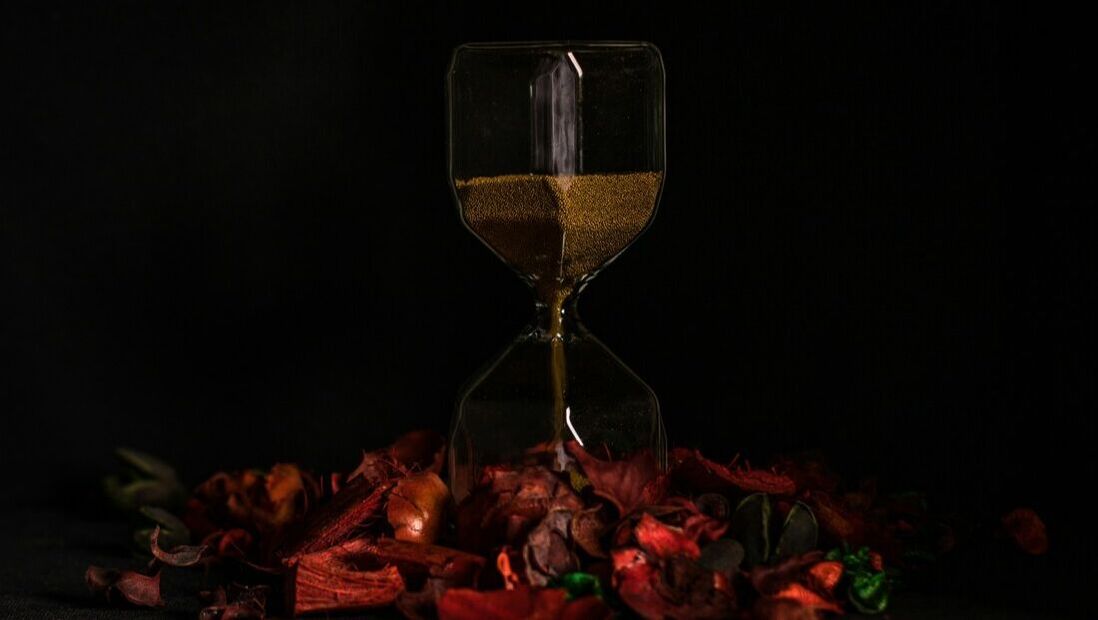







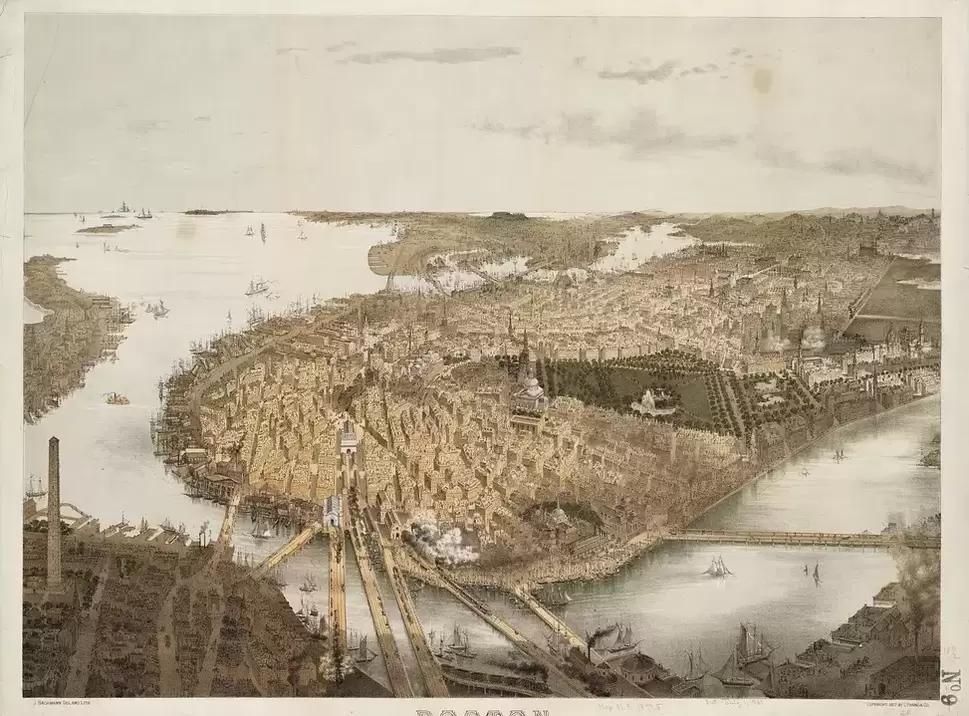




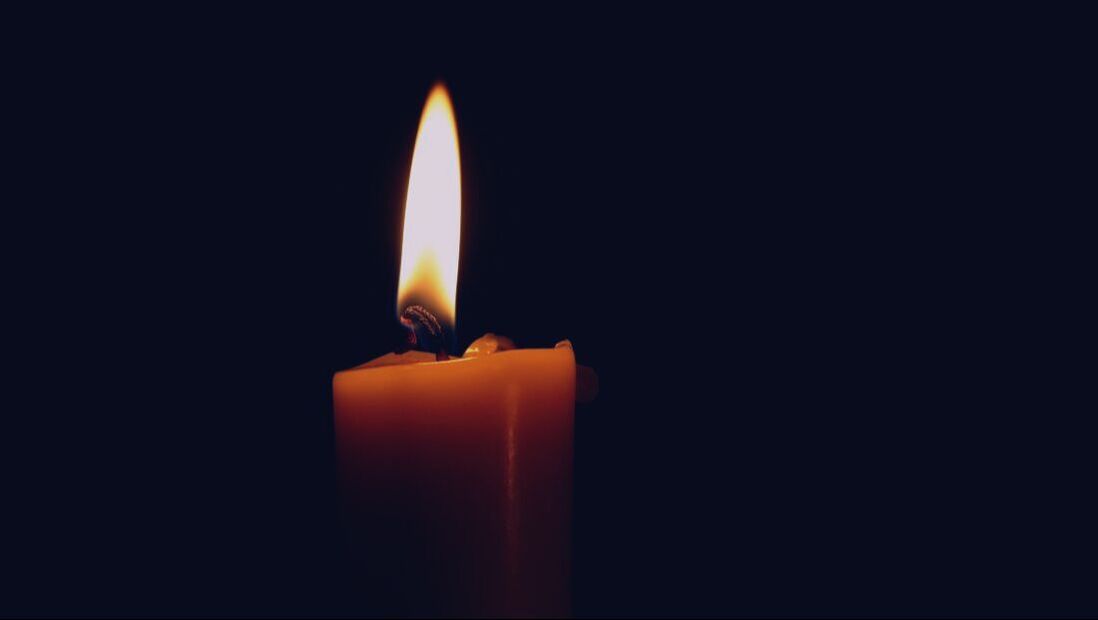

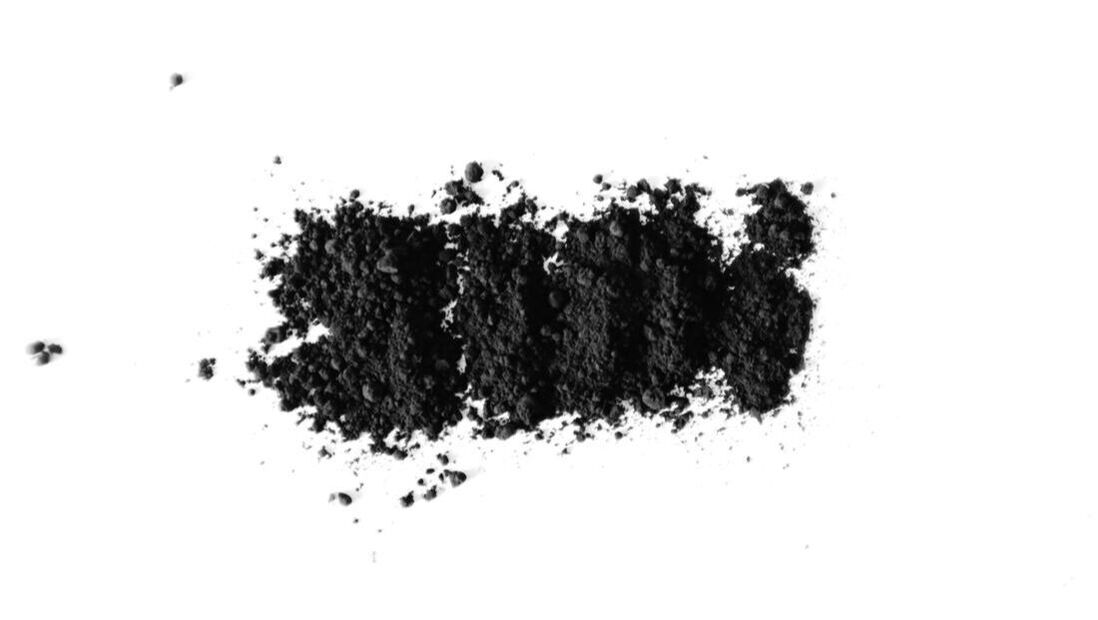




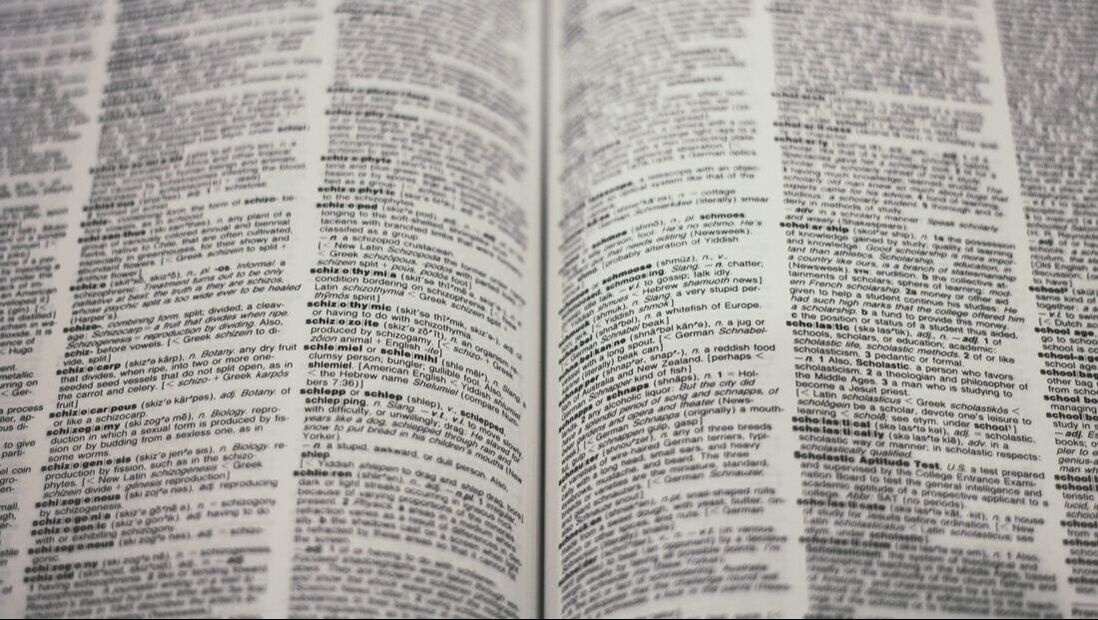


 RSS Feed
RSS Feed